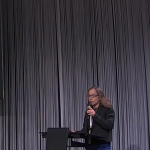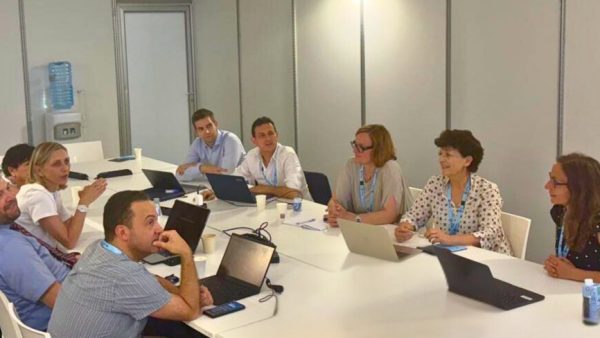
Paper in Blood Cancer Journal
March 25, 2025
3D-GATA2 Consortium Members Present at the 11th EWOG-MDS/SAA International Symposium
November 10, 2025The 3D-GATA2 project consortium gathered during the EHA 2025 Congress for a key review meeting marking the first year of the 3-year EU-funded project. The session brought together lead clinical researchers and patient representatives to reflect on research progress, strengthen collaborations, and define next steps in understanding the biology of GATA2 deficiency—a rare, inherited immunodeficiency with serious clinical implications.
The meeting was hosted by principal coordinator Professor Marlène Pasquet (CHU de Toulouse) and featured insights from various consortium members, including members from University Medical Center Ulm (Germany), Institut d’Investigació Biomèdica de Bellvitge (Spain), Universitaria di Bologna (Italy), and IPOPI representing GATA2 deficiency patients. The discussion centered on project milestones, patient engagement activities, and outreach efforts undertaken during the first project year.
Key milestones highlighted included the development of disease models on disease aetiology and development, and preliminary studies on treatment effectiveness and side effects, always with a strong commitment to integrate patient perspectives throughout the research process.
As part of the first-year achievements, the consortium established clear definitions to describe the different hematological and immunological issues observed in individuals with GATA2 deficiency, supporting the harmonization of data collection across countries. In addition, a standardized form was developed to gather essential transplant information consistently in all participating centers. These measures are expected to facilitate international data comparison and ultimately improve patient care.
The session also served as a reminder of the collaborative spirit driving the 3D-GATA2 project—uniting clinicians, researchers, and patient advocates to improve understanding and treatment of this rare disease.


